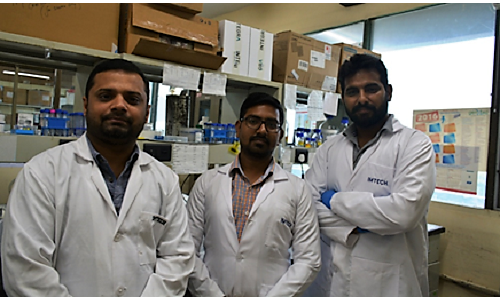Scientists at the Institute of Microbial Technology, Chandigarh find a protein that activates microphages in response to pathogenic stimuli. This could ultimately lead to the way immune system functions in handling different types of diseases, like different types of cancer.
Chandigarh (ISW) – Macrophages – derived from the Greek word meaning large eaters’ – are one of the sentinels of human immune system that engulf pathogens and degrade them and also alert other sentinels about presence of foreign pathogens. However, in some cases uncontrolled or hyper-activation of macrophages can cause cancer or autoimmune disorders.
Researchers are trying to shed light on how macrophages get activated so as to help control such problems. Scientists at the Institute of Microbial Technology (IMTECH), Chandigarh have found a protein called Arf-like (Arl) GTPase-11(Arl11) activates macrophages in response to pathogenic stimuli. In a paper published in Journal of Biological Chemistry, they have reported the protein is essential for macrophages to kill foreign pathogens.
“We worked on this particular protein as previous studies had found it to be missing in tumour cells but its function was not known. We were surprised to know that it is expressed in many immune cells including macrophages, and therefore set out to know what would be the function of Arl11 in macrophages,” Dr Amit Tuli, who led the research team.
The study throws light on cellular function of Arl11, which is an evolutionarily conserved protein. “We found that the expression of Arl11 increases when macrophages encounter pathogens and that this is required to initiate a cascade of events that finally result in activation of macrophage,” explained Subhash B. Arya, a member of the research team.
Understanding how immune system functions is crucial not only for immunotherapy, such as, against cancer but also to understand inflammation that damages normal tissues. The study found by increasing Arl11 expression in macrophages can activate them. “It will be highly relevant to study Arl11 expression changes in diseases such as autoimmune disorders, atherosclerosis and obesity”, added Dr. Tuli.
Commenting on the work, Prof. Somdatta Sinha from Indian Institute of Science Education and Research (IISER), Mohali, who was not associated with the study, said, “the study has found a novel and interesting relation between a gene that is known to be related to familial risk of different types of cancers, to its role in responding to bacterial pathogen in certain immune cells. The molecular elucidation of pathways of interactions of this gene can, in the long run, tell us ways that immune system functions in handling different types of diseases.”


